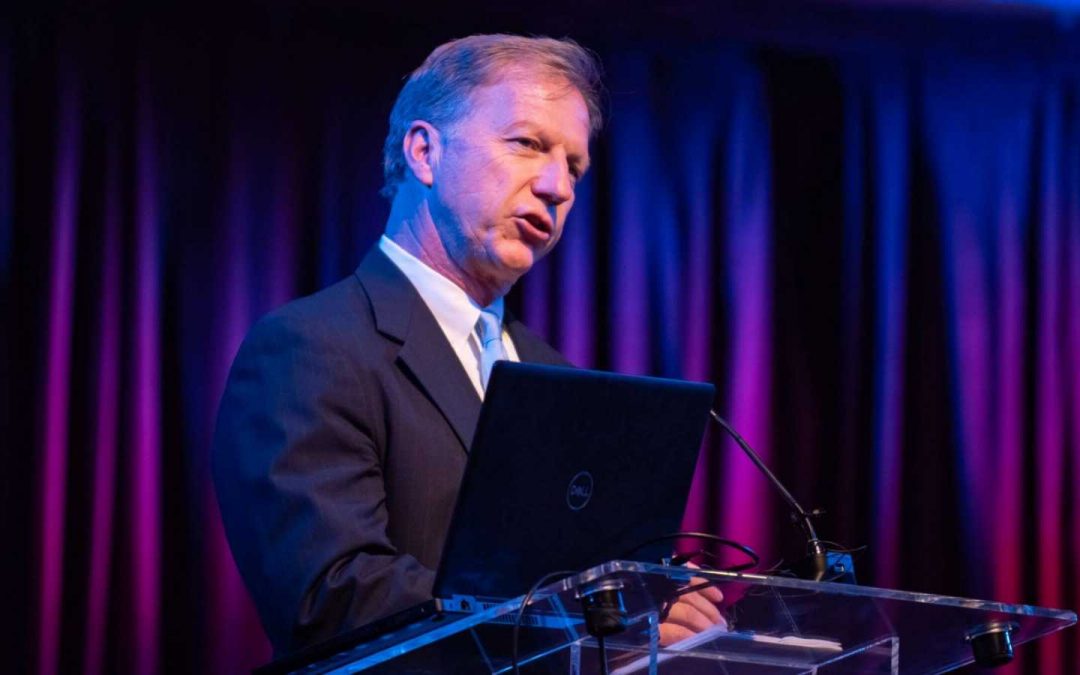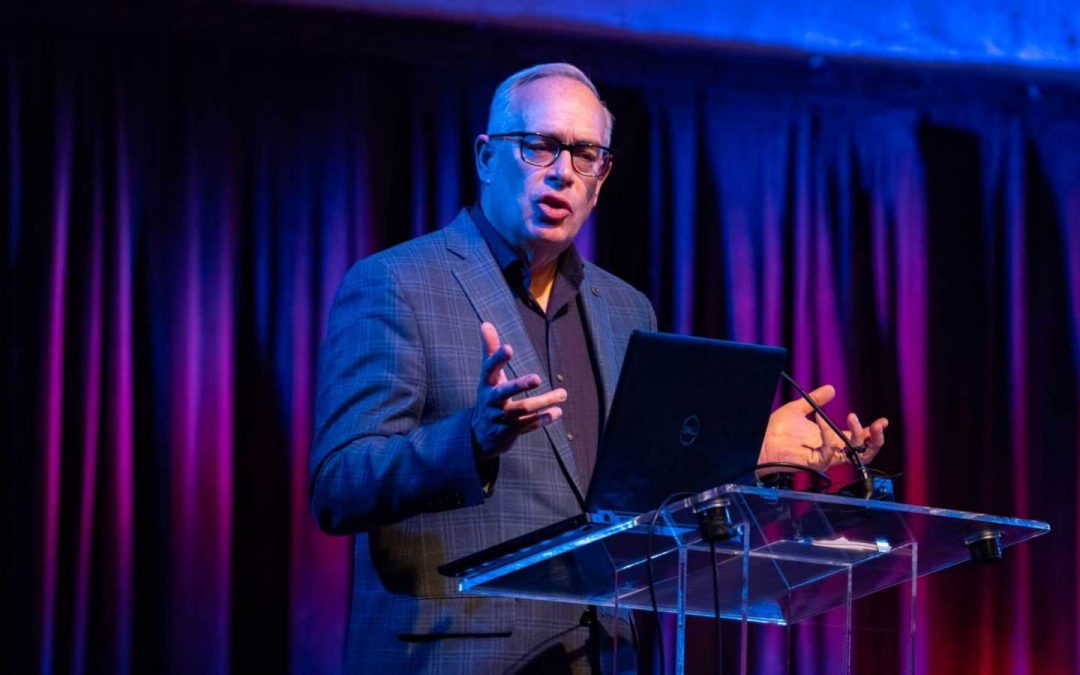Libby Wuller, Holberton | Tulsa COG2019
Transcript:
So, my name is Libby Wuller. I’m the Executive Director of Holberton Tulsa, and I’m here to tell you a little bit more about our program. So, Holberton is a revolutionary new type of coding school. We have no teachers. We have a set curriculum that’s designed out of our San Francisco campus. And we want to make it accessible for anyone from any background to learn how to code. We know that there’s a demand for these jobs, not only in Tulsa, but across the country. And we don’t have the talent pipeline as a nation to fill those gaps.
So, why Holberton? We are really unique in that our school is situated somewhere between a boot camp and a traditional university. Boot camps are great if you come from a background where you’ve already dipped your toe in the water when it comes to coding — maybe you had an IT background. But boot camps are prohibitively expensive for many people in Tulsa. It costs about $10,000 to do upfront, and they’re also a really short program. There’s only so much that anyone can soak up and three months of school. Traditional universities, be it their learning model, the funding capabilities for them, are not a good fit for every type of student.
And so what we are is a two-year program with no tuition upfront for our students. And what we want to do is bring this model to Tulsa and teach people how to, not only code, but give them lots of soft skills to make sure that they’re highly employable individuals. So, our project-based learning, our peer-to-peer learning develops these critical soft skills for our students, allows them to learn technical writing, we require students to get up and give presentations in front of their peers. And what we want to do is make sure that when we push those students out into the workforce, that they’re going to be able to collaborate. When they stumble upon a coding language they don’t know well, they can tackle it and know how to research it — because that’s what we taught them throughout school.
Holberton is a global campus network. We are really lucky to be bringing Holberton to Tulsa as the seventh location. Our headquarters is out in San Francisco. We’ve got a location in New Haven, Connecticut. We have three in Columbia, one in Tunisia, and many more on the way. The question I get from employers here is, “Are we going to be able to employ your grads after less than two years of school?” And the answer is, “yes.” The San Francisco campus has a 100% placement rate for graduates in a variety of types of, not only tech companies but what we’re seeing is that every type of industry has a need for software talent, even if it’s not the traditional Apple, Google, Facebook type companies that you would think.
What is so incredible about the opportunity that Holberton is bringing to individuals in Tulsa is the way we allow students to fund their education. We operate through an income-sharing agreement, which means that students pay no tuition upfront, no textbook fees, no application fees, and we sign an agreement with them that says we’ll take a percentage of their income once they’re employed as a software engineer. They have to make more than $40,000 a year we give them a grace period for when they are laid off or are between jobs over the course of that payback. And thanks to the George Kaiser Family Foundation, the percentage of payback at most of our campuses — 17% of your gross annual income — and for students that graduate from our location that choose to stay in Tulsa, that percentage will drop to 10[%].
We are also really privileged that the Charles & Lynn Schusterman Family Foundation have stepped in along with GKFF to provide living stipends — because we recognize that taking time off from either employment or coming right out of high school, individuals doing our program full-time need that extra support. So, we’re offering need-based living assistance grants that will operate as a zero-interest loan for anyone who applies for them. And thanks to our generous funders —for any of our graduates who stick around and Tulsa for the three-and-a-half years where they’re paying off that ISA, they stay the full three-and-a-half years, they don’t owe any of this money back. So, our goal is not only to bring people to Tulsa to be able to do these programs, to be able to learn how to code, but we want people to stick around. We want them to be employed here, we want them to see a path here. And not only for immediate employment, but really long term planting of roots. If any of you want to learn how to code, our applications for the next cohort are open, but if there was one thing you could do to help me today, go follow us on Facebook, like us on Twitter, or find us on LinkedIn and just re-share our posts. Because someone in your network has been thinking about changing their career and that post could help them find us. Thank you again, and I’ll be hanging out afterwards to answer more questions.
Learn more about the Tulsa Center of Gravity (COG) Group here.









